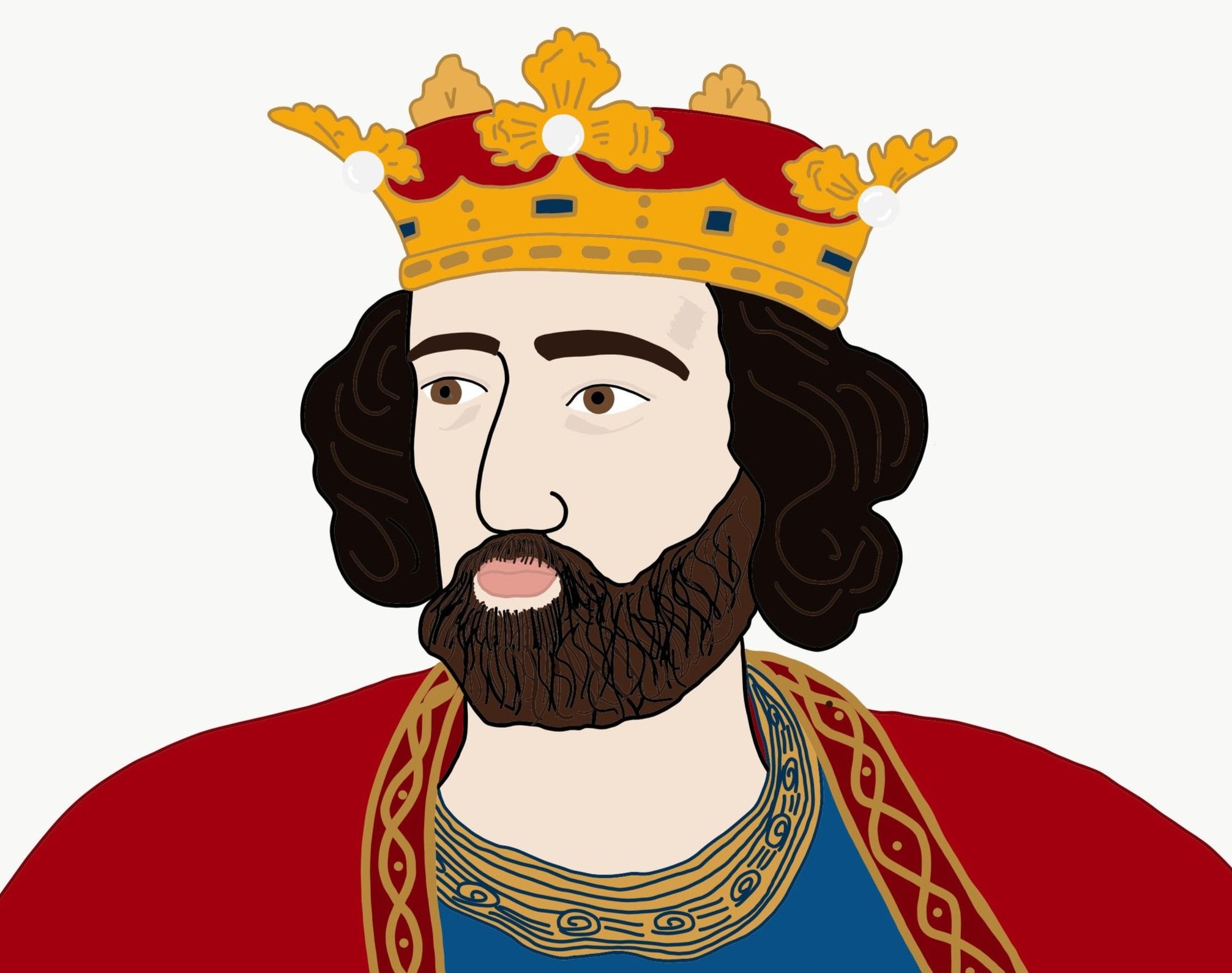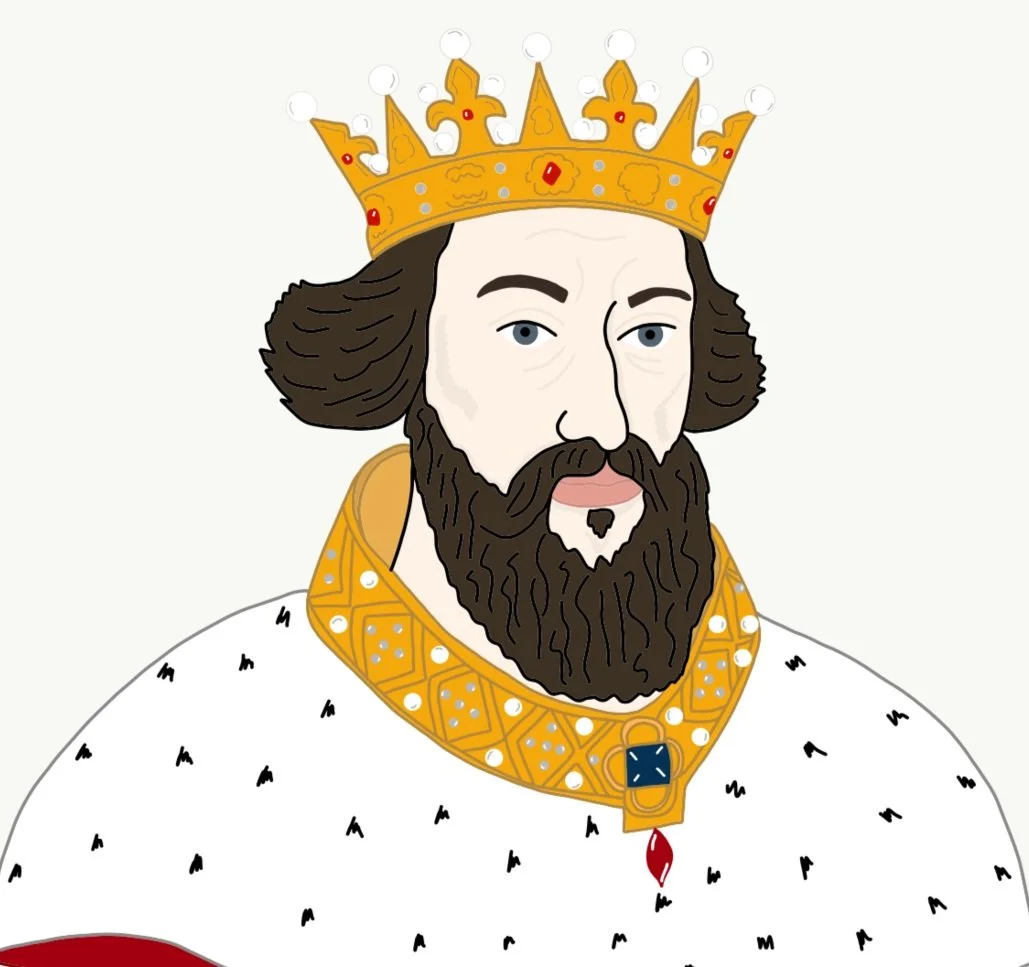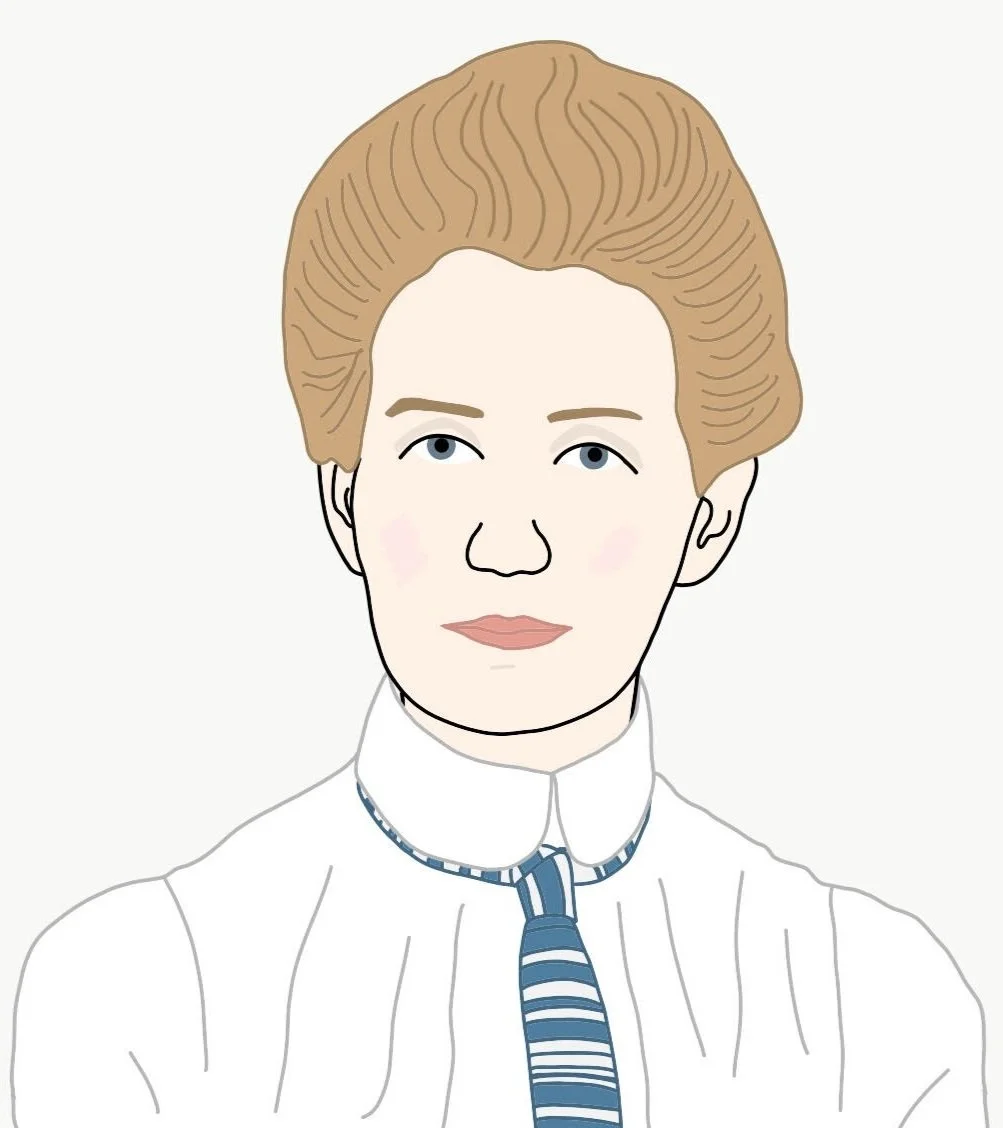November 28th - December 4th
“The first Englishman, and so far only Englishman ever, is elected Pope...”
On 28th November…
1170 - King Owain of Gwynedd died. He was the last great King of the Welsh and managed to expand the Welsh lands during the civil wars between the English King Stephen and his cousin Matilda over the English throne.
Eleanor of Castile, wife of Edward I dies
1291 - The wife of King Edward I, Eleanor of Castile, died in Northamptonshire. The king placed crosses at every place her coffin rested along its route from Northamptonshire back to London. Some of these crosses can still be seen at Geddington, Hardingstone, and Waltham. During their thirty-six years of marriage Eleanor gave birth to sixteen children but only six of them survived to adulthood.
1660 - The Royal Society was formed in London after a lecture by Christopher Wren, the famous architect. Today it is the U.K.’s national science academy and a Fellowship of 1,600 of the world’s leading scientists which is dedicated to the promotion of excellence in science.
On 29th November…
1781 - The crew of the British slave ship Zong began murdering African slaves by throwing them into the sea because it was overloaded, had missed its destination in the Caribbean and had been at sea three weeks longer than planned. Drinking water was sparse and sickness had spread among the slaves and the crew. The captain decided that the best course of action was to throw the slaves overboard to try and stop disease spreading further. In total 133 slaves were thrown overboard to drown. There were court cases and trials afterwards where the hearing was to decide not whether murders had been committed but whether or not insurance could be claimed for lost cargo (the slaves thrown overboard). This inspired the abolitionists (people who wanted to end slavery) to set up a Society for the Abolition of the Slave Trade.
1940 - Liverpool suffered 8 hours of air raid bombing in World War II which killed 166 people and left 2,000 people homeless. The Prime Minister, Winston Churchill, called it the ‘single worst civilian incident of the war.’
On 30th November…
60 - St Andrew died. He is the patron saint of Scotland, and also of Russia. His cross has been adopted as Scotland’s flag, the white X on a blue background and forms part of the Union Flag of the U.K.
King Edmund II ‘Ironside’ dies
1016 - King Edmund II of England died. He was also known as Edmund Ironside, a nickname he got for his size and strength. Edmund was the son of King Aethelred the Unready who had lost the English throne to King Sweyn of Denmark. Edmund became King of England when Sweyn died but faced invasions led by Sweyn’s son, King Canute of Denmark, who believed he had the right to the English throne. Edmund was not as easily defeated as his father had been and after several battles with the Danes suggested that he and Canute fight one to one. Seeing how big Edmund was, King Canute is reported to have said it would be an unfair battle and suggested splitting England into two once more. Edmund agreed to the proposal and to pact that the country would be joined again on the death of either King. Edmund Ironside died in suspicious circumstances just six months later on 30th November 1016, leaving King Canute as sole ruler of England.
1874 - Winston Churchill, was born in Blenheim Palace in Oxfordshire. He was the British Prime Minister during World War II and kept Britain’s spirits up with his rousing speeches which became famous. Did you know he won the Nobel Prize for Literature in 1953?
On 1st December…
King Henry I dies without a male heir
1135 - King Henry I of England died. He had become king in very suspicious circumstances; when his older brother William Rufus, King William II had been injured and killed in a hunting accident in the New Forest, Hampshire; Henry, instead of staying by his dying brother’s side, had raced to claim the throne. Henry I left no legitimate male heirs, so his nephew Stephen with the backing of the nobility raced to the throne to be crowned King of England before Henry’s daughter Matilda, who was in France, could be made queen.
Rosa Parks arrested for not moving seats on a bus
1955 - Rosa Parks was arrested for civil disobedience for refusing to move to the back of a bus and give her seat to a white person in Alabama, U.S.A. Her arrest sparked a boycott of the bus system and led to a Supreme Court ruling against segregation on public transport in the U.S.A.
On 2nd December…
1697 - The newly rebuilt St Paul’s Cathedral was consecrated (declared sacred) and a service was held in London. There had been several churches and cathedrals on the site since around 600AD in Anglo-Saxon time. Each one was destroyed by fire or intentionally by Vikings. The last building had been built of stone and dated back to about 1087 and the reign of William the Conqueror, it was destroyed in the Great Fire of London over 30 years earlier. The new St Paul’s cathedral was designed by the architect Sir Christopher Wren and took over 30 years to build.
On 3rd December…
1894 - The Scottish writer and author Robert Louis Stevenson died. His most famous books are Treasure Island, Kidnapped and The Strange Case of Dr Jekyll and Mr Hyde.
On 4th December…
1154 - The only Englishman ever to become pope, Nicolas Breakspear was elected as pope and began his papacy in Rome as Pope Adrian IV.
1214 - King William I of Scotland, also known as William the Lion, died. He fought England to regain the lands of Northumberland but ended up being captured during battle. To be released he had to sign the Treaty of Falasie which made him agree to tax the Scottish people and pay King Henry II of England to keep English armies in Scottish castles. The treaty also made William acknowledge Henry as his overlord and superior. When Henry II died William was able to buy back the English rights and gain Scottish freedom from England because the new English king, Richard I, needed money to finance his crusades abroad.
1791 - The Observer newspaper was first published in London. It is Britain’s oldest Sunday newspaper.
Edith Cavell is born in Norfolk
1865 - Edith Cavell was born in Norfolk, England. During World War I she became a nurse in German occupied Belgium treating both German and Allied soldiers alike but was caught aiding Allied soldiers to escape. She was found guilty and sentenced to death for her actions. This led to uproar from governments around the world but despite their objections Edith Cavell was executed by firing squad along with others convicted of the same crime.




